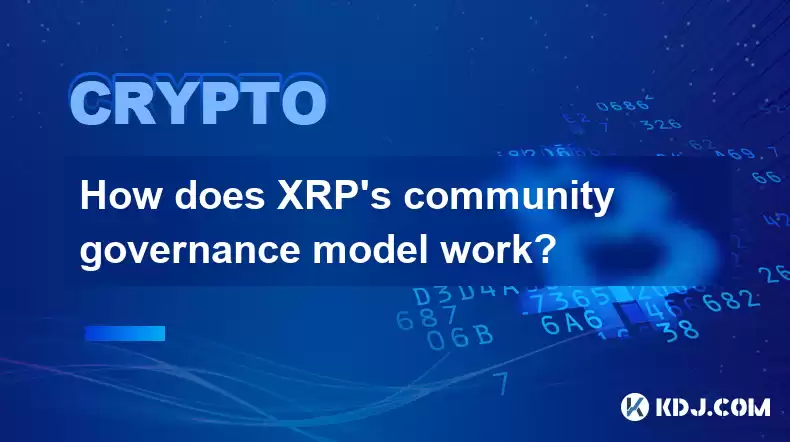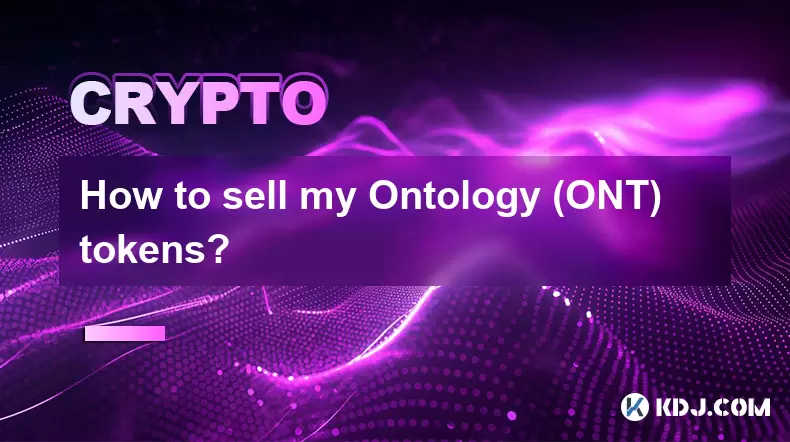-
 Bitcoin
Bitcoin $116400
-0.36% -
 Ethereum
Ethereum $4033
3.40% -
 XRP
XRP $3.302
-1.26% -
 Tether USDt
Tether USDt $1.000
-0.02% -
 BNB
BNB $796.1
1.67% -
 Solana
Solana $177.8
1.89% -
 USDC
USDC $0.9999
0.00% -
 Dogecoin
Dogecoin $0.2314
4.09% -
 TRON
TRON $0.3381
0.14% -
 Cardano
Cardano $0.7989
1.22% -
 Stellar
Stellar $0.4496
-1.84% -
 Chainlink
Chainlink $20.42
9.42% -
 Hyperliquid
Hyperliquid $41.17
0.88% -
 Sui
Sui $3.914
3.77% -
 Bitcoin Cash
Bitcoin Cash $584.7
1.52% -
 Hedera
Hedera $0.2632
-0.54% -
 Avalanche
Avalanche $24.09
3.40% -
 Ethena USDe
Ethena USDe $1.001
-0.02% -
 Litecoin
Litecoin $123.2
1.33% -
 Toncoin
Toncoin $3.318
-0.04% -
 UNUS SED LEO
UNUS SED LEO $8.984
-0.05% -
 Shiba Inu
Shiba Inu $0.00001323
2.85% -
 Uniswap
Uniswap $10.90
4.41% -
 Polkadot
Polkadot $3.999
3.34% -
 Dai
Dai $1.000
0.01% -
 Cronos
Cronos $0.1630
9.64% -
 Bitget Token
Bitget Token $4.484
0.82% -
 Monero
Monero $272.4
2.44% -
 Pepe
Pepe $0.00001173
6.03% -
 Aave
Aave $290.8
2.88%
How does XRP's community governance model work?
XRP's governance is centralized, with Ripple Labs holding significant control and XRP holders lacking direct voting power. Community influence is indirect, primarily through feedback and engagement with Ripple, though transparency remains a key area for improvement, impacted by ongoing legal challenges.
Mar 04, 2025 at 05:30 am

Key Points:
- XRP doesn't have a Decentralized Autonomous Organization (DAO) like many other cryptocurrencies. Its governance is largely centralized, residing with Ripple Labs.
- The community's influence is indirect, primarily through engagement with Ripple, feedback on proposals, and participation in the XRP ecosystem.
- Ripple Labs holds a significant portion of XRP, influencing its direction and development.
- Transparency in decision-making is a key area of ongoing discussion and development within the XRP community.
- Legal challenges faced by Ripple have also significantly impacted the perception and function of its governance model.
How Does XRP's Community Governance Model Work?
Unlike many cryptocurrencies that utilize a decentralized autonomous organization (DAO) for governance, XRP's governance model is significantly centralized. Ripple Labs, the company behind XRP, retains a substantial degree of control over the cryptocurrency's development and direction. This differs from projects aiming for fully decentralized governance where decisions are made by token holders through voting mechanisms within a smart contract.
The community's involvement in XRP's governance is primarily indirect. Ripple engages with the community through various channels, including social media, developer forums, and conferences. Community feedback is often considered, although the final decisions remain largely with Ripple Labs. This approach is a subject of ongoing debate, with some advocating for greater community participation.
Ripple's significant holding of XRP gives it considerable influence over the cryptocurrency's future. This concentration of power allows them to shape the direction of development, influencing everything from technological upgrades to marketing strategies. While some see this centralization as efficient, others express concerns about the potential for misuse of this power.
Transparency is a crucial aspect of any governance model, and this is particularly true for cryptocurrencies. The level of transparency in XRP's governance is a topic of much discussion within the community. While Ripple publishes updates and announcements, the decision-making processes remain largely opaque to the broader public. Increased transparency is a frequent request from community members seeking greater participation in the decision-making process.
The ongoing legal battles between Ripple and the Securities and Exchange Commission (SEC) have profoundly impacted the perception and function of XRP's governance. The uncertainty surrounding the legal outcome influences investor confidence and potentially limits community involvement. The SEC's claims that XRP is an unregistered security challenge the decentralized nature often associated with cryptocurrencies.
The Role of Ripple Labs
Ripple Labs acts as the primary driver of XRP's development and governance. They are responsible for:
- Software Development: Maintaining and upgrading the XRP Ledger.
- Marketing and Adoption: Promoting the use of XRP within the financial industry.
- Regulatory Compliance: Navigating the complex regulatory landscape for XRP.
- Community Engagement: Interacting with the XRP community and gathering feedback.
Ripple Labs’ role is pivotal, and its decisions significantly impact the entire XRP ecosystem. However, the level of community influence remains a key point of contention.
Community Participation and Feedback Mechanisms
While XRP's governance is centralized, Ripple does engage with the community in various ways. These include:
- Online Forums and Social Media: Ripple actively participates in discussions on various online platforms.
- Developer Conferences: Ripple hosts and participates in conferences where developers and community members can interact.
- Feedback Mechanisms: While formal voting mechanisms are absent, Ripple solicits and considers community feedback on proposed changes and updates.
The effectiveness of these mechanisms is debated, with some arguing for more formalized and structured channels for community input.
Challenges and Future Outlook
The current governance model faces several challenges:
- Centralization Concerns: The significant power held by Ripple Labs raises concerns about potential centralization and lack of community control.
- Transparency Issues: The lack of complete transparency in decision-making processes is a recurring criticism.
- Legal Uncertainty: The ongoing SEC lawsuit creates significant uncertainty regarding XRP's future.
Addressing these challenges will likely involve increased transparency, more formalized community engagement mechanisms, and possibly exploring options for more decentralized governance structures in the future. However, any significant changes would require substantial adjustments to the existing framework and Ripple's operational structure.
Frequently Asked Questions (FAQs)
Q: Can XRP holders vote on proposals like in other cryptocurrencies with DAOs?
A: No, XRP holders currently do not have a direct voting mechanism to influence the development or direction of the cryptocurrency. Governance is largely centralized with Ripple Labs.
Q: How does Ripple decide what features to add or remove from the XRP Ledger?
A: Ripple Labs makes these decisions, taking into account community feedback, market trends, and its own strategic goals. While community feedback is considered, the ultimate authority rests with Ripple.
Q: What is the role of the XRP community in the project's development?
A: The XRP community's role is primarily one of providing feedback and contributing to the ecosystem through development, advocacy, and engagement with Ripple Labs. Their influence is largely indirect.
Q: How transparent is Ripple about its decision-making processes regarding XRP?
A: Ripple's transparency is a subject of ongoing debate. While they provide updates and announcements, the details of their internal decision-making processes are not always publicly available.
Q: Will XRP's governance model ever become more decentralized?
A: This is uncertain. While there is community interest in a more decentralized approach, Ripple has not yet publicly committed to significant changes in its governance structure. The ongoing legal situation also significantly influences the potential for such changes.
Disclaimer:info@kdj.com
The information provided is not trading advice. kdj.com does not assume any responsibility for any investments made based on the information provided in this article. Cryptocurrencies are highly volatile and it is highly recommended that you invest with caution after thorough research!
If you believe that the content used on this website infringes your copyright, please contact us immediately (info@kdj.com) and we will delete it promptly.
- Shiba Inu (SHIB) in the Crypto Landscape: Community, Trends, and Future Outlook
- 2025-08-09 20:30:12
- Lasers in Modern Warfare: Iron Beam and the Future of Defense
- 2025-08-09 20:30:12
- Maxi Doge Presale: The Meme Coin That's Pumping Iron and Prices!
- 2025-08-09 19:10:11
- Rare Coin Warning: Don't Get Fooled by That 1p Coin!
- 2025-08-09 18:50:12
- Cardano, Unilabs, and Tron Price: Decoding the Latest Crypto Buzz
- 2025-08-09 18:30:12
- Aerodrome Finance: Price Targets and the Bullish Channel - What's Next?
- 2025-08-09 18:50:12
Related knowledge

Where can I buy UMA (UMA)?
Aug 07,2025 at 06:42pm
Understanding UMA and Its Role in Decentralized FinanceUMA (Universal Market Access) is an Ethereum-based decentralized finance (DeFi) protocol design...

How to buy Storj (STORJ) tokens?
Aug 09,2025 at 07:28am
Understanding Storj (STORJ) and Its Role in Decentralized StorageStorj is a decentralized cloud storage platform that leverages blockchain technology ...

What is the best app to buy Nano (NANO)?
Aug 09,2025 at 03:35am
Understanding Nano (NANO) and Its Unique FeaturesNano is a feeless, instant cryptocurrency designed for fast peer-to-peer transactions. Unlike many ot...

Where can I purchase Siacoin (SC)?
Aug 08,2025 at 11:14am
Understanding Siacoin (SC) and Its Role in the Sia NetworkSiacoin (SC) is the native cryptocurrency of the Sia decentralized cloud storage platform, a...

How to sell my Ontology (ONT) tokens?
Aug 09,2025 at 06:08pm
Understanding Ontology (ONT) and Its Trading EcosystemBefore selling your Ontology (ONT) tokens, it's essential to understand the nature of the crypto...

Where can I buy OMG Network (OMG)?
Aug 08,2025 at 12:57pm
Understanding OMG Network (OMG) and Its PurposeThe OMG Network, originally known as OmiseGO, is a layer-2 scaling solution built on the Ethereum block...

Where can I buy UMA (UMA)?
Aug 07,2025 at 06:42pm
Understanding UMA and Its Role in Decentralized FinanceUMA (Universal Market Access) is an Ethereum-based decentralized finance (DeFi) protocol design...

How to buy Storj (STORJ) tokens?
Aug 09,2025 at 07:28am
Understanding Storj (STORJ) and Its Role in Decentralized StorageStorj is a decentralized cloud storage platform that leverages blockchain technology ...

What is the best app to buy Nano (NANO)?
Aug 09,2025 at 03:35am
Understanding Nano (NANO) and Its Unique FeaturesNano is a feeless, instant cryptocurrency designed for fast peer-to-peer transactions. Unlike many ot...

Where can I purchase Siacoin (SC)?
Aug 08,2025 at 11:14am
Understanding Siacoin (SC) and Its Role in the Sia NetworkSiacoin (SC) is the native cryptocurrency of the Sia decentralized cloud storage platform, a...

How to sell my Ontology (ONT) tokens?
Aug 09,2025 at 06:08pm
Understanding Ontology (ONT) and Its Trading EcosystemBefore selling your Ontology (ONT) tokens, it's essential to understand the nature of the crypto...

Where can I buy OMG Network (OMG)?
Aug 08,2025 at 12:57pm
Understanding OMG Network (OMG) and Its PurposeThe OMG Network, originally known as OmiseGO, is a layer-2 scaling solution built on the Ethereum block...
See all articles

























































































